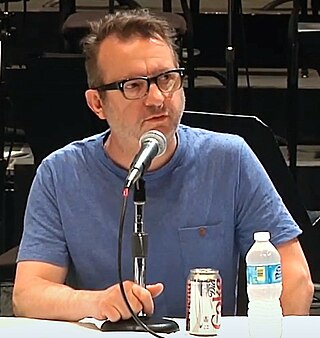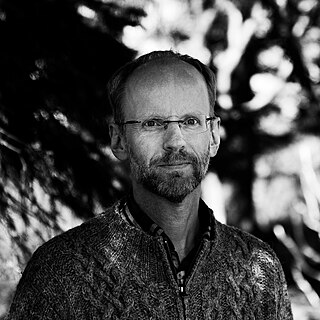
Mark-Anthony Turnage is an English composer of contemporary classical music.
Richard Danielpour is an American composer and academic, currently affiliated with the Curtis Institute of Music and the University of California, Los Angeles.
Walter Sinclair Hartley was an American composer of contemporary classical music.
Philip Cashian is an English composer. He is the head of composition at the Royal Academy of Music.

Ulrich Leyendecker was a German composer of classical music. His output consisted mainly of symphonies, concertos, chamber and instrumental music.
Chen Yi is a Chinese-American composer of contemporary classical music and violinist. She was the first Chinese woman to receive a Master of Arts (M.A.) in music composition from the Central Conservatory of Music in Beijing. Chen was a finalist for the 2006 Pulitzer Prize for Music for her composition Si Ji, and has received awards from the Koussevistky Music Foundation and American Academy of Arts and Letters, as well as fellowships from the Guggenheim Foundation and the National Endowment for the Arts. In 2010, she was awarded an Honorary Doctorate from The New School and in 2012, she was awarded the Brock Commission from the American Choral Directors Association. She was elected to the American Academy of Arts and Letters in 2019.
Ctirad Kohoutek was a contemporary Czech composer, music theorist, and pedagogue.

Haukur Tómasson is an Icelandic composer. He has a master's degree from the University of California, San Diego. He has also attended the Reykjavík College of Music, the Cologne University for Music and the Sweelinck Conservatory of Amsterdam.
Dan Welcher is an American composer, conductor, and music educator.
Matthew John Hindson AM is an Australian composer.
Margaret Brouwer is an American composer and composition teacher. She founded the Blue Streak Ensemble chamber music group.

Donald Henry Kay AM is an Australian classical composer.
Jan Tausinger was a Romania-born ethnic Czech violist, conductor and composer.
Jiří Teml is a Czech composer and radio producer.

Andreas Makris was a Greek-American composer and violinist, born in Kilkis, Greece, on March 7, 1930. He was a Composer-in-Residence for many years at the National Symphony Orchestra in Washington DC, working with conductors such as Howard Mitchell, Mstislav Rostropovich, Antal Dorati, and Leonard Slatkin. He composed around 100 works for orchestra, chamber ensembles, and solo instruments, including the Aegean Festival Overture, which, transcribed for concert band by Major Albert Bader of the USAF Band, became a popular piece with US bands. Grants and awards he received include the Damroch Grant, National Endowment for the Arts Grant, the Martha Baird Rockefeller Award, ASCAP Award, the Fulbright Scholarship, and citations from the Greek Government.

Mark Carlson is an American composer, flutist, UCLA professor, and the founder and artistic director of the chamber music ensemble Pacific Serenades.
Marcel Wengler is a Luxembourg composer and conductor. From 1972–1997, he headed the Conservatoire de Luxembourg. Since 2000, he has been director of the Luxembourg Music Information Centre. His compositions include symphonies, concertos, chamber music and musicals.
Juraj Filas was a Slovak composer. His work included more than 100 compositions: symphonies, cantatas, numerous compositions for chamber ensemble, as well as the prize-winning TV opera Memento Mori; a concerto grosso Copernicus; the opera Jane Eyre (2010); The Wisdom of the Wise Man, a cantata for choir, cello and organ; The Song of Solomon, a cantata for soli, choir and orchestra; and the requiem Oratio Spei, which was dedicated to the victims of terrorism.
William (Willy) Ostijn, also seen as Ostyn, was a classical Belgian composer of the 20th century.
Kerry Turner is an American composer and horn player. Turner is a recognized name in the horn and brass industry. Turner’s major ensembles with whom he performs include the American Horn Quartet, the Virtuoso Horn Duo, and the Luxembourg Philharmonic Orchestra. Turner has performed internationally as a soloist and clinician. Turner also sings tenor in a semi-professional octet.





